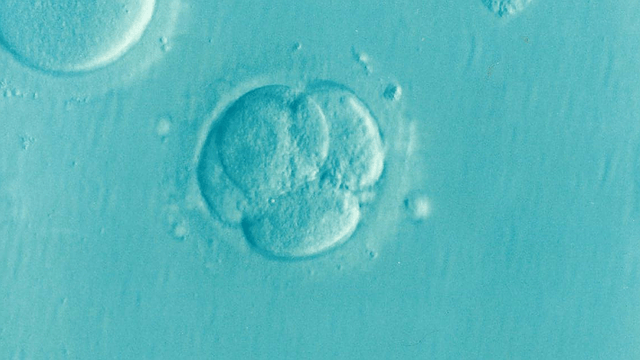Once you’ve received the diagnosis of infertility the sheer amount of information about drugs such as Follistim, Gonal-F or Clomid, as well as the procedures treatments and next steps, can be overwhelming. Having a ready reference guide to often used medications, medical terminology and procedures helps to ease the worry about your conception journey. Luckily, a large number of fertility drugs now available on the market are having very good success rates (depending on your situation). Chances are, one of them will work. But which one?

Given that insurance companies still rarely cover fertility treatment, and the cost of fertility meds can still be exorbitant, it is important to know what the drug is for, what the brand name fertility drug is called, and what to avoid if you decide to purchase discount fertility drugs online to save money.
Understanding Follicle Stimulating Hormones
Produced by a small gland the size of a pea, called the pituitary gland, the follicle stimulating hormones (FSH) stimulates the growth of follicles and therefore, your eggs. It is located at the base of your brain. In men it is responsible for the development of a man’s testicles in puberty and in later life, regulates sperm production. When you have a deficit of the FSH then fertility is impacted. This can mean a lower than normal sperm count for men, or in women it can mean irregular periods (or nonexistent ones), resulting often in no eggs being released at all.
In the U.S., most Reproductive Endocrinologists (fertility doctors), prescribe doses of fertility drugs that have additional FSH in them to help bring your levels up to normal. Typical name brands include Follistim, Gonal-F and Purgon. In 2015 another FSH fertility drug, named Bravelle, was pulled from the shelves because the manufacturer found it didn’t have a good shelf life (which lowered its potency). Currently there are no generic equivalents for Follistim, so be extremely wary of anyone offering a low-cost fertility drug claiming to be its generic equivalent. Dosages vary depending on the amount of the hormone in your system.
Understanding Luteinizing Hormones

Most receive both a dose of FSH and luteinizing hormones (LH). Sometimes there are medications that combine both. Menopur and Repronex are two of the name brands prescribed in the U.S. Luteinizing hormone, in particular, stimulates the ovaries to produce more than one egg during a cycle. This is very useful for those planning to go through IVF procedures where gathering multiple eggs for fertilization is necessary. In general, a normal woman will have 8.7 to 76.3 IU/L at the peak of their menstrual cycle and 1.9 to 12.5 IU/L while in the follicular phase. If you don’t fall into those ranges you may be prescribed additional fertility drugs that include LH.
Other Common Fertility Drugs and their Uses
The following are also commonly prescribed to treat infertility or to prepare for IVF procedures.
- Clomid: This drug is issued in pill form and is a combo FSH/LH medication. It causes eggs to develop in the follicle. Sometimes Letrozole (sometimes called Femara) is prescribed but it is controversial because not enough is known about its use during early pregnancy.
- Ovidrel and Pregnyl: These are hcG (human chorionic gonadotropic) fertility drugs and may be prescribed to you if your body is producing eggs but they are not maturing long enough to remain viable. They are administered by injection, which you can do yourself. This may also be prescribed if you are getting ready to undergo IVF treatments because it is possible to have more than one egg released at ovulation.
- Cetrotide: Similar to the fertility medications Ovidrel and Pregnyl, it allows your eggs time to mature before release. Often it is combined with other HCG hormones.
- Crinone 8% Gel: This fertility drug is a form of progesterone and helps prepare the lining of the uterus for pregnancy. If you’ve been diagnosed with a thin lining, or if eggs do not remain implanted due to lack of adhesion, this may be prescribed (keep in mind that every patient’s case is different).
- Lupron: This is an injectable fertility drug and it makes sure the eggs remain until mature. This is often prescribed if you are receiving an IVF treatment.
- Ganirelix: Also an injectable fertility drug, ganirelix inhibits estrogen. If you have trouble conceiving because of hormonal imbalances, have irregular periods or ovulation, or have uterine fibroids or endometriosis, then this is often prescribed to help deal with the infertility arising from such conditions.
- Vivelle: This is a transdermal patch that you place on your skin. It provides additional estrogen to your system if you are found to be deficient in it.
Fertility Treatment Terminology You Should Know
So much is assumed when you work with fertility specialists, such understanding what the listing “IU” is after a fertility medication, or what the various hormones are within your own body. What’s the difference between IUI, IVF and Assisted reproductive technology? Here’s a quick and easy reference for all the most likely terms:
IUI (Intrauterine insemination): Often this is referred to as artificial insemination.
Invitro Fertilization (IVF): This is where your ovaries are stimulated to produce many eggs and then they are taken from your body to be fertilized in a lab. They are then reinserted into your body with the hope that a pregnancy will occur.
Assisted Reproductive Technology: Another phrase for invitro fertilization.
Embryonic Transfer: This is where viable eggs, that have been fertilized in the lab, are transferred back into your uterus, where it is expected conception will take place. This is done using a procedure called transvaginal ultrasound aspiration.
Egg Donor: If you do not have sufficient eggs, or they are just not viable any longer, there are eggs you can arrange to purchase. Donor eggs are given by healthy women to women whose eggs are not healthy or existent.
Hyperstimulation: This is where your body produces more than one egg and it causes your ovary to become swollen and painful. Most of the fertility drugs today have a low occurrence of this, but your doctor will (or should) monitor this closely if you are using FSH fertility drugs.
Ovulation Induction: This is where you’ll use FSH or a combo FSH/LH fertility med to stimulate production of eggs.
Oocyte Maturation: This is where the eggs have grown to sufficient maturity (usually between 8-14 days). You may be given the HCG drugs to help your eggs mature.
Ivfprescriptions.com has been partnering with couples for more than three decades, and is one of the primary suppliers of infertility drugs to clinics, hospitals, and fertility clinics worldwide. You can buy infertility drugs online directly from us as well. Call today to find out more!
#bestfertilitydrugsonline, #discountivfmeds, #getivfdrugsdiscount, #getpregnantfaster, #cheaponlineivfmeds, #cheapivfdrugs

